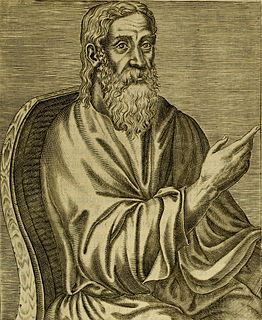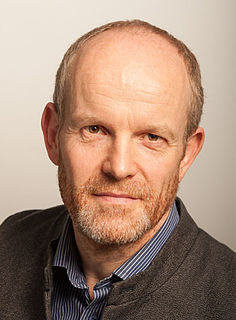A Quote by Pope Francis
The disciple of Jesus gives up all he has, all his goods, because he has found in him the greatest Good from which every other good receives its full value and meaning: family bonds, other relationships, work, cultural and economic goods and so on... The Christian detaches himself from everything and rediscovers all of it in the logic of the Gospel, the logic of love and service.
Related Quotes
Three sorts of goods, Aristotle specified, contribute to happiness: goods of the soul, including moral and intellectual virtues and education; bodily goods, such as strength, good health, beauty, and sound senses; and external goods, such as wealth, friends, good birth, good children, good heredity, good reputation and the like.
[Freedom] is the greatest of political goods. I do not say freedom is the greatest of all goods: the best things come from within they are such things as creative art, and love, and thought. Such things can be helped or hindered by political conditions, but not actually produced by them; and freedom is, both in itself and in its relation to these other goods the best thing that political and economic conditions can secure.
What we often take to be family values--the work ethic, honesty, clean living, marital fidelity, and individual responsibility--are in fact social, religious, or cultural values. To be sure, these values are transmitted by parents to their children and are familial in that sense. They do not, however, originate within the family. It is the value of close relationships with other family members, and the importance of these bonds relative to other needs.
What we're talking about is the price of goods, all goods, in terms of money. That has nothing to do with unemployment, except for the fact that you get fewer goods. And when you have more money and fewer goods, the amount of dollars per good goes up. It goes up because there are fewer goods and it goes up because there is more money.
What a man does, that he has. What has he to do with hope or fear? In himself is his might. Let him regard no good as solid but that which is in his nature, and which must grow out of him as long as he exists. The goods of fortune may come and go like summer leaves; let him scatter them on every wind as the momentary signs of his infinite productiveness.
We must not cast away riches which can benefit our neighbor. Possessions were made to be possessed; goods are called goods because they do good, and they have been provided by God for the good of men: they are at hand and serve as the material, the instruments for a good use in the hand of him who knows how to use them.
Among all the liberal arts, the first is logic, and specifically that part of logic which gives initial instruction about words. ... [T]he word "logic" has a broad meaning, and is not restricted exclusively to the science of argumentative reasoning. [It includes] Grammar [which] is "the science of speaking and writing correctly-the starting point of all liberal studies."
Do not worry! Earthly goods deceive the human heart into believing that they give it security and freedom from worry. But in truth, they are what cause anxiety. The heart which clings to goods receives with them the choking burden of worry. Worry collects treasures, and treasures produce more worries. We desire to secure our lives with earthly goods; we want our worrying to make us worry-free, but the truth is the opposite. The chains which bind us to earthly goods, the clutches which hold the goods tight, are themselves worries.
Only the gospel can truly save you. The gospel doesn't make good people good; it makes dead people alive. That's the difference between the gospel of Jesus Christ and every other world religion. All the others exhort their followers to save themselves by being good, by conforming their lives to whatever their worshiped deity is. But the gospel is God's acceptance of us based on what Christ has done, not on what we can do.



































